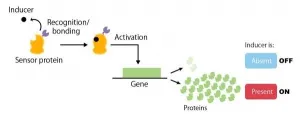(Press-News.org) It is an open question to what extent protection against reinfection persists after overcoming a SARS-CoV-2 infection. The "Rhineland Study", a population-based study conducted by DZNE in the Bonn area, is now providing new findings in this regard. Blood samples taken last year indicate that an important component of immunity - the levels of specific neutralizing antibodies against the coronavirus - had dropped in most of the study participants with a previous infection after four to five months. In some, antibody titers even fell below the detection limit. These results, published in the scientific journal "Nature Communications", lay the groundwork for planned follow-up studies.
Between April and June 2020, around 5,300 adult Bonn residents were tested for antibodies against the SARS-CoV-2 coronavirus as part of the „Rhineland Study" - an ongoing DZNE study investigating population health. For this purpose, blood samples were taken and analyzed. If initial results were positive, these samples were subjected to further testing by means of a so-called "plaque reduction neutralization test" to ensure that the detected antibodies were specifically directed against SARS-CoV-2 - and not against other coronaviruses that, e.g., can trigger common colds. In these analyses, the team of the Rhineland Study cooperated with the Institute of Virology at the Charité - Universitätsmedizin Berlin.
Waning Antibodies
Antibodies are proteins produced by the immune system with which the human organism defends itself against pathogens. In 22 study participants, "neutralizing" and thus particularly effective antibodies, which directly prevent the entry of SARS-CoV-2 into cells, could be detected. This indicated previous contact with the virus. The majority of these individuals reported to have experienced only a mild or even asymptomatic course of the disease. They were retested in September 2020 - approximately four to five months after the initial blood sampling. In most of these persons antibody levels had waned, and in four individuals antibodies could not even be detected anymore.
"These studies occurred during the first wave of the pandemic. The number of people who had already become infected at that time was therefore relatively low. In the meantime, we have a different situation," Prof. Monique Breteler, head of the Rhineland Study, says. "Nonetheless, our results suggest that the widely used, just single-stage procedure for detecting SARS-CoV-2 antibodies by immunoassay is insufficient to reliably identify a passed infection. In any case, in our sample, only about one-third of the individuals who were positive by immunoassay actually had specific antibodies against SARS-CoV-2. This should be considered in immunity studies. In my view, a multistage testing procedure like the one we used is highly recommended."
Duration of immunity against SARS-CoV-2
These study data, however, do not allow direct inferences about the extent to which the waning of the antibodies affects the immune response, Dr. Ahmad Aziz, DZNE scientist and first author of the current publication, notes. "The decrease in antibodies seems to happen relatively quickly. However, the immune system has other tools to fight off pathogens. Antibodies are without doubt relevant, but they are only part of a larger arsenal. Other studies suggest that another component, which we call the cellular immune response, may persist despite dropping antibody levels."
In fact, little is known about the durability of immunity to SARS-CoV-2 after infection. This may also depend on the particular variant of the virus. "On the part of the Rhineland Study, we intend to continue to track the development of the pandemic and its effects on the mental and physical health of the population. Our study is the basis for this." Breteler says. "Ultimately, we want to help better understand why some people don't even notice an infection and others become severely ill."
To this end, the researchers are relying on the Rhineland Study's data pool. Extensive health and lifestyle data are collected from all participants, for example on their blood counts, body composition, cardiovascular function, as well as sleep, diet and physical activity. "We have background information on all study participants that is relevant to health. This could be key to understanding the consequences of infection with SARS-CoV-2 and may help identifying risk factors," Breteler says.
INFORMATION:
Original publication
Seroprevalence and correlates of SARS-CoV-2 neutralizing antibodies from a population-based study in Bonn, Germany, N. Ahmad Aziz et al., Nature Communications (2021), 12: 2117, DOI: https://doi.org/10.1038/s41467-021-22351-5, URL: https://rdcu.be/cinoH
Background
In the Rhineland Study, the DZNE is investigating how the health of adults develops up to old age. Around 6,000 Bonn residents are currently enrolled in the study, which was launched in 2016; in the long term, the number is planned to grow to up to 20,000. Participants will be invited every three to four years for a comprehensive assessment of their physical and mental fitness. Website (German): http://www.rheinland-studie.de
About Deutsches Zentrum für Neurodegenerative Erkrankungen (German Center for Neurodegenerative Diseases, DZNE)
The DZNE investigates all aspects of neurodegenerative diseases (such as Alzheimer's and Parkinson's and Amyotrophic lateral sclerosis) in order to develop novel approaches of prevention, treatment, and health care. It is comprised of ten sites across Germany and cooperates closely with universities, university hospitals, and other research institutions on a national and international level. The DZNE is a member of the Helmholtz Association of German Research Centers. Website: http://www.dzne.de/en
Research breakthrough in understanding how neural systems process and store information.
A team of scientists from the University of Exeter and the University of Auckland have made a breakthrough in the quest to better understand how neural systems are able to process and store information.
The researchers, including lead author Dr Kyle Wedgwood from the University of Exeter's Living Systems Institute, have made a significant discovery in how a single cell can store electrical patterns, similar to memories.
They compared sophisticated mathematical modelling to lab-based experiments to determine how different parameters, such as how long it takes ...
In a new study, Dr. LU Xiankai and his colleagues from the South China Botanical Garden (SCBG) of the Chinese Academy of Sciences (CAS) found that tropical forests can capture carbon dioxide (CO2) into soils and thus reduce emitted CO2. But how exactly do tropical forest soils capture atmospheric CO2?
Current knowledge of forest soil carbon sequestration mainly focuses on temperate and boreal forests, where most ecosystems are nitrogen-limited, and an increase in nitrogen supply can enhance net primary productivity (NPP) and subsequent soil carbon ...
A group of researchers from Kobe University and Chiba University has successfully developed a flexible and simple method of artificially producing genetic switches for yeast, a model eukaryotic organism. The group consisted of Researcher TOMINAGA Masahiro*1, Associate Professor ISHII Jun*2 and Professor KONDO Akihiko*3 (of Kobe University's Graduate School of Science, Technology and Innovation/Engineering Biology Research Center), and Professor UMENO Daisuke et al. (of Chiba University's Graduate School of Engineering).
Genetic switches are gene regulatory networks that control gene expression. The researchers established a platform for ...
Oakland, CA-In the first study to report on the health effects of exposure to a toxic environmental chemical over three human generations, a new study has found that granddaughters whose grandmothers were exposed to the pesticide DDT have higher rates of obesity and earlier first menstrual periods. This may increase the granddaughters' risk for breast cancer as well as high blood pressure, diabetes and other cardiometabolic diseases.
The research by the Public Health Institute's Child Health and Development Studies (CHDS) and the University of California at Davis was published today ...
WINSTON-SALEM, N.C. - April 14, 2021 - Investigators at Wake Forest School of Medicine, part of Wake Forest Baptist Health, have identified a set of new genetic markers that could potentially lead to new personalized treatments for lung cancer.
The study appears online in Cancer Research, a journal of the American Association for Cancer Research.
This study was built on a previous discovery by the precision oncology team at Wake Forest Baptist's Comprehensive Cancer Center, directed by Wei Zhang, Ph.D., professor of cancer biology at Wake Forest School of Medicine and a co-corresponding author of this study. Using DNA sequencing technologies, Zhang's team found that tumors with mutated KMT2 genes, a family of proteins, exhibit a feature ...
A new study based on daily COVID-19 data from Brazil details the fast spread of both cases and deaths in the country, with distinct patterns by state, and where inequities regarding the implementation of policies and resources exacerbated the spread in lower-income regions. Despite an extensive network of primary care availability, Brazil - which did not pursue a coordinated national pandemic response strategy - has suffered greatly during the COVID-19 pandemic. "[T]he federal response has been a dangerous combination of inaction and wrongdoing," write Marcia Castro and colleagues. Using daily data from State Health Offices, Castro ...
A new report tracks the evolution of a variant lineage of SARS-CoV-2 associated with rapid transmission in Manaus, Brazil, that evolved in November 2020. The study's authors suggest this variant, "P.1," may be more transmissible and more likely to evade protective immunity elicited by previous infection with non-P.1 lineages. Manaus, Brazil, reached unprecedented levels of SARS-CoV-2 transmission in mid-2020. And after a momentary respite, cases surged with fatal consequences. Using molecular clock analysis, Nuno Faria et al. tracked the evolution of a new, more aggressive lineage called P.1, which possesses 17 mutations, including three (K417T, ...
We refer to the microbiome as the community of microorganisms that exist in or on all organisms, including bacteria and fungi. A team from the Institute of Environmental Biotechnology at Graz University of Technology (TU Graz) led by Institute head Gabriele Berg has now investigated the microbiomes of apples and oil pumpkins in two independent studies. The researchers have found that bacteria useful to plants are largely "inherited," i.e., passed on to the next generation, while the community of fungi in the microbiome is highly dependent on the particular soil microbiome and thus on the locality.
Microbiome-guided breeding of oil pumpkins
The breeding ...
When people are asked to draw the flower of a sunflower plant, almost everyone draws a large circle encircled by yellow petals.
"Actually, that structure is the flower head, or the capitulum, which may be composed of hundreds of flowers, also known as florets. The surrounding 'petals' are florets different in structure and function to those closer to the centre," says Professor of Horticulture Paula Elomaa from the Faculty of Agriculture and Forestry, University of Helsinki, Finland.
A giant inflorescence is beneficial, as it is effective in attracting pollinators. When pollinators move around the inflorescence, they pollinate hundreds of individual florets over the course of ...
Tokyo, Japan - Researchers at the Institute of Industrial Science, a part of The University of Tokyo, have developed a new method of producing concrete without cement. They have directly bonded sand particles via a simple reaction in alcohol with a catalyst. This may help both to slash carbon emissions and to construct buildings and structures in desert regions, even on the Moon or Mars.
Concrete consists of two parts: the aggregate (typically made of sand and gravel) and cement (responsible for 8% of total global CO2 emissions). Despite there being a huge amount of sand in the world, the availability of sand for concrete production is fairly limited because sand particles must have a specific size distribution ...


